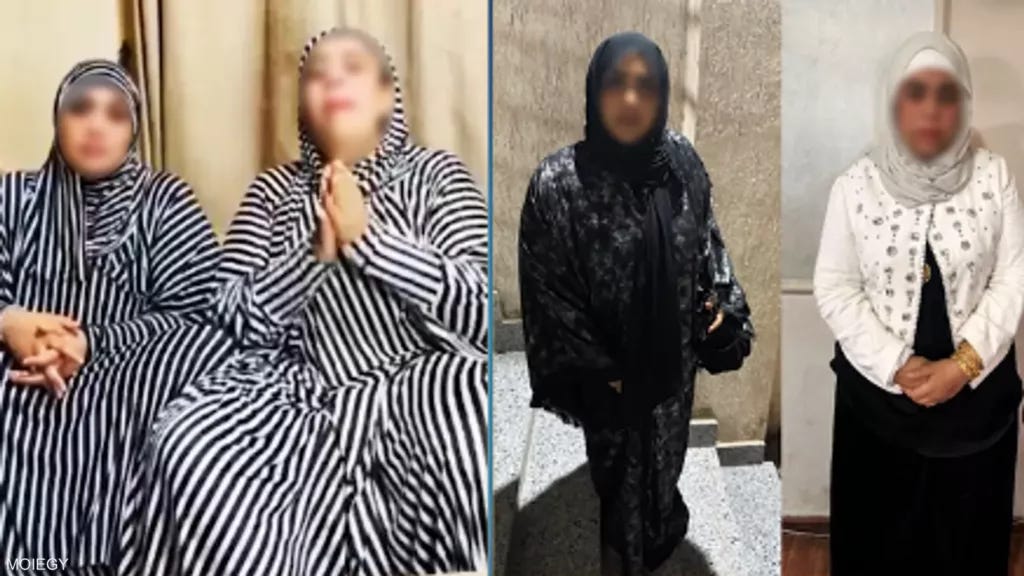In recent days, Egyptian security forces have arrested a number of TikTok celebrities, accusing them of violating “Egyptian family values,” publishing “inappropriate content,” and committing other recurring, often criminally framed, offenses.
Yet, beyond these stated charges lie deeper political and security-related motives. What are they? And before we answer that, how did millions of Egyptians end up on TikTok in the first place?
Authoritarian Repression
Social media platforms have created new lifestyles in recent years, particularly through apps offering games, challenges, and video-based interactions aimed at socializing.
Among them is TikTok, which has made a huge splash in Egypt, especially among Generation Z. Today, more than 32 million Egyptians use the app—a remarkable increase from the roughly 5 million users in its early years in Egypt, since late 2017.
This surge is not just about passing time or making friends. In recent years, TikTok introduced challenge-based games allowing users to open chat rooms with others. Through these challenges, and the viewer donations that come with them, users can earn substantial income in the form of virtual gifts converted into cash.
For many, TikTok became an easy way to make money in a country plagued by deepening poverty due to authoritarian economic mismanagement that has neglected citizens’ needs.
Beyond financial gain, TikTok offers fame—especially to those with comedic or satirical appeal. This recognition fulfills a psychological need: to be seen and acknowledged.
According to German philosopher Axel Honneth, people strive for recognition, and many TikTok users come from working-class or marginalized backgrounds long denied it. Social media fame can even open doors to careers in entertainment and advertising, making the platform a springboard for broader opportunities.
This phenomenon cannot be separated from Egypt’s emptied public sphere. This generation has grown up under the repressive post–July 2013 regime, which has drained public life of political engagement, intellectual debate, civic participation, and cultural expression.
With protest, activism, and even independent thought suppressed through imprisonment, torture, enforced disappearances, and intimidation, young people have channeled their energy into online spaces—most prominently TikTok.
How the State Thinks
In recent days, police have arrested numerous TikTok creators. The Interior Ministry’s official explanation centers on “inappropriate content” and “attacks on Egyptian family values.”
These accusations are hardly new; in past years, other young men and women on similar platforms have been prosecuted and sentenced to prison or fined. Often, additional charges—such as human trafficking, as in the case of Haneen Hossam, or money laundering, as alleged against the recently arrested “Suzy the Jordanian”—have been added.
Charges related to “violating Egyptian family values” or breaching public morality are inherently vague, with no fixed legal definition. What constitutes “immorality” is decided by the state—not society.
In Egypt, morality is selectively enforced: online spaces are tightly policed for sexual innuendo or suggestive content, while similar behavior in television shows, films, and certain elite spaces—such as luxury resorts along the North Coast—goes unpunished.
This reflects the class-based nature of moral enforcement. The state imposes its “ethical” code most harshly on certain socio-economic groups, particularly those for whom rapid wealth accumulation is frowned upon. A notable example occurred months ago, when YouTuber Ahmed Abou Zeid was arrested for allegedly holding large sums of US dollars without a clear source.
Though he proved his earnings came from YouTube—a legal and state-regulated activity—authorities confiscated his money, later releasing him without compensation or further legal process. This illustrates how social class influences both moral judgment and the right to financial gain.
The Absence of Justice and Reform
Money laundering was also cited in the latest arrests. The Interior Ministry accused “Suzy the Jordanian” of laundering approximately 15 million Egyptian pounds allegedly earned from TikTok, allegedly concealed through real estate purchases. The investigation is ongoing.
However, for many of those arrested—including content creator and podcast host Mohamed Abdel Aaty—the only charges so far are “violating public values” and sharing “inappropriate content.” They face no specific criminal allegations like human trafficking, fraud, or drug possession.
Over time, new layers are often added to such cases, introducing criminal charges without undermining the core pattern: selective moral enforcement targeting middle and lower classes, on the regime’s terms, not society’s.
The problem goes deeper than moral policing. Egypt’s justice system often bypasses due process, with politically sensitive cases shaped not in courtrooms but in National Security offices—an entity that operates above judicial oversight and claims ultimate authority over the nation’s security.
Meanwhile, Egyptian prisons serve as factories of human degradation, with harsh, dehumanizing conditions in blatant violation of constitutional guarantees for humane treatment of inmates.
Ultimately, the Egyptian regime monitors the digital sphere through the Public Prosecution’s monitoring unit and cybercrime police, imposing its moral and punitive vision through repression, selectivity, and violence—rather than dialogue, reform, or opening public space for political and intellectual participation.
This punitive system operates outside any genuine framework of justice—one that would apply equally across classes, free from the influence of powerful security bodies. Instead, it reinforces an unjust, inhumane cycle that harms both individuals and society at large.




